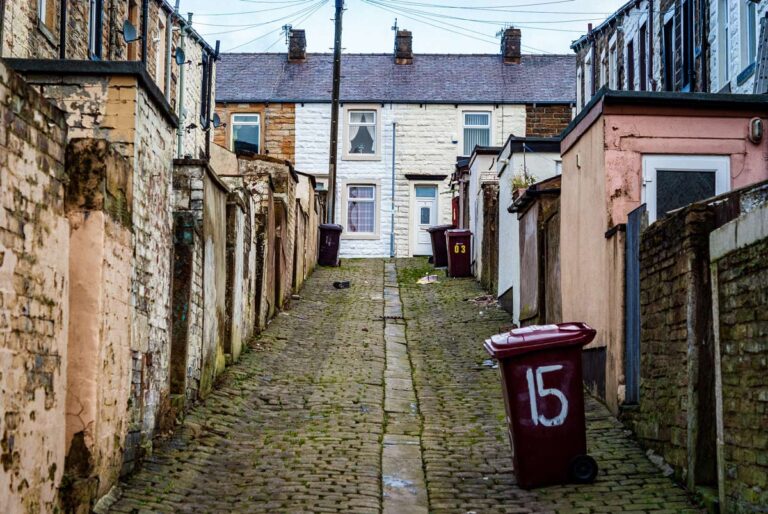What is Britishcore? The TikTok trend that transports you back in time

The British Isles: the miserable and the mundane, at least for ten months out of the year. It’s not all sunshine and roses; top hats and the Queen’s English; extravagant dinners at stately homes, akin to scenes from Downton Abbey. Sorry to burst your bubble, but for the vast majority of us, there’s a collective image—a feeling of what it’s like to be raised on this island. And until recently, I couldn’t quite put my finger on it.
What is the Britishcore aesthetic?
If you’re as addicted to TikTok as me, you’ve probably stumbled across the #britishcore trend on your For You Page. Nostalgia is the fundamental core of Britishcore. It’s “anything you look at or hear and instantly feel like you’ve been there before,” according to Max Ballard in his interview with i-D, a photographer and graphic designer who popularised the phrase on TikTok. “It all ties in with the whole feeling of nostalgia for me,” he adds.
Think run-down community pubs; a singular traffic cone standing alone against a pothole-ridden side street; the derelict back alley of a council estate; an old ad campaign flaking off an inner-city billboard. The kind of UK-specific images that are fundamentally British, even if it’s unspoken and untouched by the international media. And it works, for me at least. Flicking through the Britshcore is a transportation into the mid-to-late 2000s: a simpler time where you’d grab a Freddo from the local offy and hurry home to check on your Tamagotchi.
@cameranostalgiaclub Reply to @blue_tango #fy #digitalcamera #35mmfilm #camcorder
♬ rain jack stauber - jack stauber audios
And that’s what makes art, art: the ability to invoke emotion, unravelling memories buried deep in your mind—muddy, grey reconstructions of monotonous British suburbia. The island I call home. Heck, until writing this I forgot just how big of a deal Bebo was and just how cheap Freddos were. Those memories were all but lost.
It’s surprising then to find out that the Britishcore aesthetic, currently making the rounds across the UK-specific TikTok space (and beyond), with views in the millions, was pioneered by Ballard inadvertently. He started his account @cameranostaligaclub to showcase various old cameras from the 90s and 00s on his online store. To do this, he would take various snaps of his village, Great Wakering, Essex. “It’s a little more rural but very British to some people, mainly due to it being so stuck in the past,” he tells i-D.
Before Ballard started to add to the #britishcore digital sphere, the hashtag had only been used around a thousand times. Now, the trend has skyrocketed, with over five million uses within the last four months. It’s built a community of creators and nostalgia-hunters, connected by a means of sharing the beautifully mundane nature of British life. One user commented “rich or poor, every Brit can relate to these photos.” Another added, “the only way you know it’s the south is the road works sign. They don’t fix roads up north…” I agree.
Why should we even care?
Again, the reason why Britishcore is worth writing about is not because of the singular images themselves, but the emotion it evokes. It runs off a collective feeling of nostalgia—amplified by the use of old cameras straight from the age of N-Dubz and Blink-182 (before they got washed out). It’s something all Brits can relate to; in an increasingly divided kingdom, it’s refreshing to find a trend that brings us together, even over a hideously addictive app. Nostalgia is a powerful human emotion: it can make work more meaningful; it can enhance the present. A study found that if individuals at work reflected on past meaningful experiences, they would become motivated to prioritise the meaning in the present.
Ballard believes the sudden popularity of Britishcore might be a reflection of the current times we’re living in. The pandemic has left an open wound in our national consciousness. Faced with tough times and bleak prospects, it’s understandable that we’re yearning to return to the past—a rose-tinted vision of childhood familiarity. “I think it’s quite comforting knowing you’ve got somewhere to call home,” Ballard told i-D, “Like, imagine in 30 years going back to that same spot where you used to chill with your friends and spend most of your days laughing… for me that’s what Britishcore is all about: enjoying life.”





